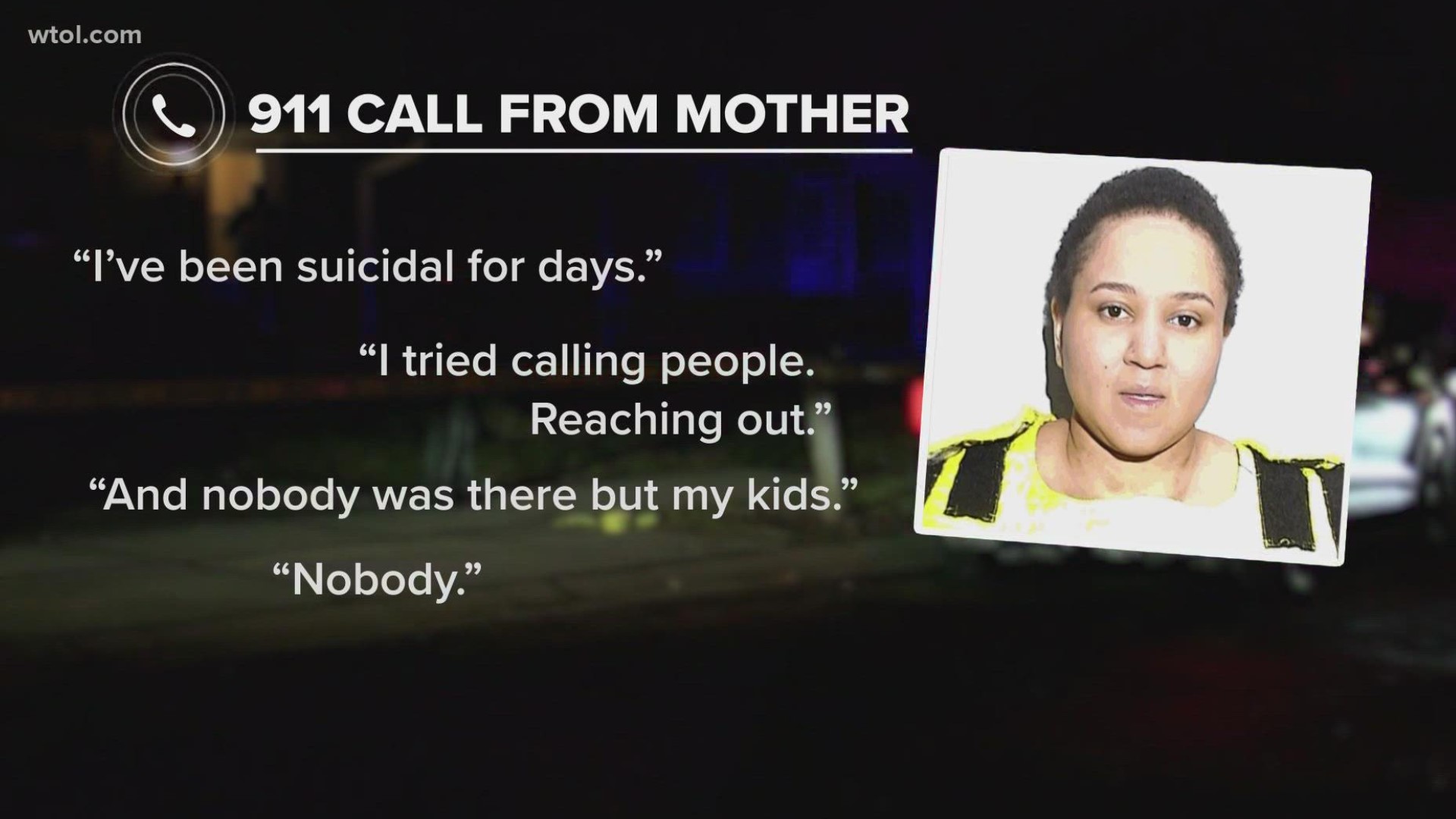LUCAS COUNTY, Ohio — Audio of a 911 call released by authorities brings to light details surrounding an incident Thursday that resulted in two children hospitalized with serious injuries.
Their mother called 911 reporting she had hurt her children with a knife. In the audio, she pleads with the dispatcher for help.
You can hear the mother, 28-year-old Jamesiha Taylor, mention reaching out for help, and saying she wasn't able to get any.
"I've been suicidal for days. I tried calling people. Reaching out. And no one was there but my kids. Nobody," Taylor told the dispatcher.
Taylor placed the 911 call Thursday evening from outside Franklin Park Mall, admitting to stabbing her two children at their home in Springfield Township.
When authorities arrived at the home, they found a 7-year-old and an 8-year-old, and a scene that the Lucas County sheriff described as "horrific."
It's a tragedy that's hard to comprehend. A mental health professional explains how something like this starts, and how it potentially reaches an outcome like this.
"It's extremely sad to hear that someone was feeling so isolated and alone that they couldn't reach out or didn't feel they had resources to reach out, and ended up resulting in hurting young children," said Jeremy Miller, the health manager of Residential Services for Substance Use at Unison Health in Toledo.
Miller says the pandemic has caused an influx of people, young and old, seeking help.
"From juveniles who are not getting the socialization that they were getting at school or are struggling with school or don't maybe have the best home lives," Miller said. "And also from parents who are really struggling with children, who are at home more often."
But you don't have to suffer alone.
Although some mental health care facilities may be stretched thin, Miller says there are other direct ways to contact someone right away.
"Instead of utilizing the community mental health centers. There are now apps that will link you with a licensed therapist in your area," Miller said.
The National Alliance on Mental Illness also has free support groups and can link you to other resources locally and nationally.
Signs to look out for include being more agitated than normal, feeling like you are unable to control yourself or feeling like you may do harm to yourself or someone else.
Miller says it's never too early to reach out to someone for help.
If a situation involves immediate danger to you or a loved one, calling 911 and talking with police may be necessary.
"If all else fails, reach out to the police to say 'I don't know what to do here but I know I'm struggling,'" said Miller.
Tell 911 that it is a psychiatric emergency and ask for police officers trained in crisis intervention (CIT).
Miller says you can always reach out to Lucas County Children Services and ask for resources. You can place a call at any time at 419-213-2273.
Resources include the Lucas County Crisis CARE Line at 419-904-CARE (2273).
And he says the national line you can always call is SAMHSA National Hotline at 1-800-662-HELP (4357).
Other options for help include NAMI Greater Toledo Family Navigators, which can provide guidance on how to seek mental wellness. Family Navigators is available at 419-243-1119 M-F from 8 a.m. - 4:30 p.m.
The Lucas County emotional support hotline is available at 419-442-0580 from 8 a.m. to midnight and offers peer support.
If you want to talk to someone and are not in immediate danger, Text "4hope" to 741-741 to be connected to the Ohio Mental Health and Addiction Services Crisis Text Line and a trained counselor within 5 minutes. There is no charge and the information will not show up on your phone bill.

